 |
 |
 |
|
» The Brewery Tour Slides
7 - 12
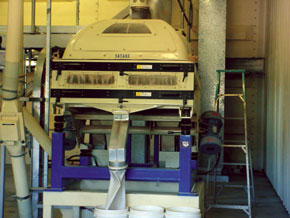 |
 |
Here at the grain mill is where
the process starts. |
| |
 |
|
| |
|
|
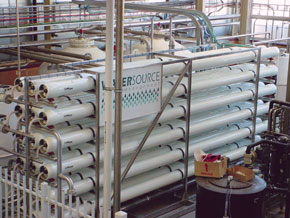 |
 |
Desalination facility. As with
many regions of the world, Australia is trying to come to grips
with an ever increasing need for finite fresh water supplies,
and the resulting environmental impact. Rather than use precious
local fresh water supplies, the Coopers Brewery decided to install
a state-of-the-art water purifying capability. Their water is
drawn from an on-site well, that because of Adelaide’s
proximity to the ocean is salt water. |
| |
 |
|
| |
|
|
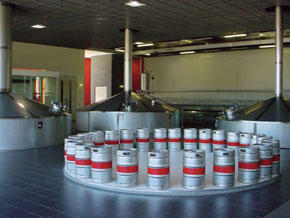 |
 |
The mash tun’s are back-center and right.
This is where both the Coopers beer and Coopers malt extract
get mashed, sparged and boiled. The boiler
is on the left, the lauter tun in the background. The foreground
kegs mark the location of an eventually to be added mash tun
or boiler. |
| |
 |
|
| |
|
|
 |
 |
As part of the Coopers Brewery commitment to protecting
Australia’s environmental resources, they have installed
an energy recapturing system (background) on
the boiler. This reduces the brewery’s energy needs and
significantly reduces the volume of materials exiting the brewery
during the boiling process. |
| |
 |
|
| |
|
|
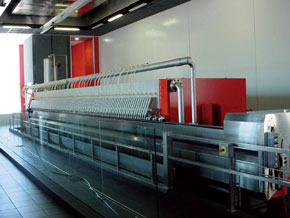 |
 |
Definitely not your Grandfather’s
lauter tun. The next generation in lautering calls
for water to be added to the mash and then run through a special
filter to separate wort from husk material. |
| |
 |
|
| |
|
|
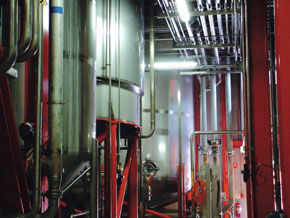 |
 |
Fermenters. When Coopers isn’t
making malt extracts for the world’s homebrewers, they
engage in a little sideline of making ales and stouts for the
locals. |
| |
 |
|
| |
|
|
|
|
 |